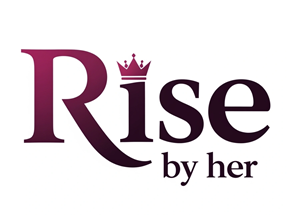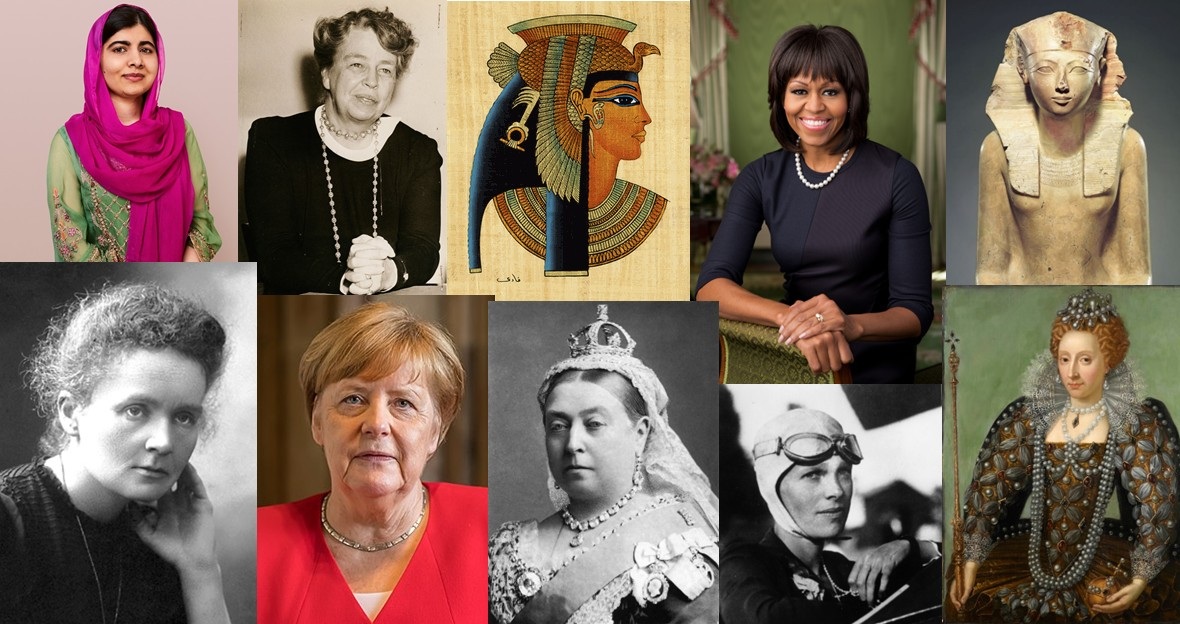In every era, through times of peace and periods of crisis, inspirational female leaders have quietly reshaped the world. Their leadership transcends titles and industries; it’s rooted in empathy, resilience, clarity of purpose, and a deep sense of responsibility to those they serve. These qualities aren’t just admirable; they’re effective, and they offer timeless lessons for anyone seeking to grow as a leader.
From grassroots activists to CEOs and heads of state, leadership lessons from women continue to prove that influence isn’t always loud, it’s often intentional, inclusive, and deeply human. Women leaders tend to prioritize long-term impact over short-term wins, collaboration over ego, and empowerment over control. These aren’t just leadership styles; they’re powerful strategies backed by results.
What makes these female leadership qualities especially enduring is their adaptability. Whether in politics, tech, education, or community organizing, the same core principles (authenticity, emotional intelligence, and integrity) reliably drive meaningful change.
This blog post explores timeless leadership lessons from women who have not only led but transformed the way we define leadership itself. Their stories are more than inspirational: they’re roadmaps for becoming the kind of leader the world needs now.
Embracing Empathy and Emotional Intelligence in Leadership
In today’s complex and fast-paced world, technical expertise alone is no longer enough to define great leadership. What sets truly impactful leaders apart (particularly inspirational female leaders) is their ability to lead with empathy and emotional intelligence.
Why Emotional Intelligence in Leadership Matters
Emotional intelligence (EQ) is the ability to understand, manage, and respond to emotions, both our own and others’. Leaders with high EQ are better equipped to:
- Build stronger, trust-based relationships with their teams
- Navigate conflict with grace and fairness
- Make inclusive, values-driven decisions
- Adapt their leadership style to meet diverse needs
For female leaders, this skill often comes to the forefront, not as a soft or secondary trait, but as a core leadership strength. It allows them to create environments where people feel heard, respected, and motivated to contribute at their highest level.
Michelle Obama: A Living Example of Empathy in Female Leadership
Michelle Obama exemplifies how empathy in female leadership can move hearts and shift cultures. Her global initiatives (especially Let Girls Learn) focused on amplifying the voices and futures of young women who are often overlooked.
Rather than relying on rhetoric alone, she connected through storytelling, vulnerability, and deep cultural awareness. In speeches and interviews, she has spoken candidly about:
- Her struggles balancing career and motherhood
- The importance of feeling seen and heard
- The power of community and mutual support
These authentic moments made her relatable and trustworthy, not just as a public figure, but as a leader of global influence. Her approach highlights how leading with empathy builds bridges, strengthens movements, and inspires lasting change.
Empathy isn’t just a “nice-to-have”, it’s a necessity for leaders in the modern world. And as more female leaders rise to the top, their emotionally intelligent leadership is proving not only effective but transformative.
Leading with Authenticity and Courage
Authenticity is one of the most powerful tools a leader can possess. In a world where people crave connection and honesty, authentic leadership becomes a cornerstone of effective leadership. When leaders are genuine about who they are, their strengths, and their weaknesses, they create an environment of trust and respect, which in turn fosters collaboration and innovation.

Why Authentic Leadership is Essential
Leaders who embrace their true selves (and show their human side) are more likely to build strong, cohesive teams. Authenticity isn’t about perfection; it’s about being true to your values, emotions, and beliefs while showing up consistently for your team. Here’s why this approach works:
- Trust Building: Authentic leaders are open about their own journeys, mistakes, and successes, which encourages transparency within teams.
- Stronger Team Connections: Vulnerable leadership makes others feel safe to share their ideas, concerns, and challenges, leading to more open dialogue.
- Increased Loyalty: When employees see their leaders as real people, they are more likely to feel emotionally invested and committed.
By showing their vulnerability, leaders break down barriers and pave the way for deeper connections with their teams, creating a supportive and inclusive work culture.
Ellery Shawver: The Power of Vulnerability in Leadership
Ellery Shawver, an influential leader known for her work in the tech industry, is an excellent example of how embracing vulnerability in leadership can make a profound impact. Shawver doesn’t shy away from acknowledging her challenges, both professional and personal. She believes that true leadership begins when you stop pretending to be invincible and start showing your true self.
Her approach has inspired countless others, proving that when leaders share their struggles, they not only build trust but also encourage others to embrace their own imperfections. Shawver’s openness has empowered her team to tackle obstacles with resilience, knowing that leadership isn’t about never failing, it’s about how you respond to those failures.
Authentic leadership and vulnerability go hand-in-hand. By demonstrating vulnerability, leaders humanize themselves and create a culture of mutual respect and understanding.
Building Resilience and Strength Through Adversity
Resilience is a defining characteristic of the most effective leaders, particularly resilient female leaders who often face greater obstacles in their leadership journeys. In a world full of challenges, be it personal, professional, or societal, leaders who demonstrate resilience inspire those around them to keep pushing forward, no matter how tough the circumstances.
Why Resilience is Crucial in Leadership
Resilience in leadership isn’t just about bouncing back from setbacks. It’s about maintaining vision, focus, and a positive mindset when the going gets tough. Here’s how resilient leaders thrive:
- Adapting to Change: Resilient leaders are flexible and can quickly pivot strategies when necessary, without losing sight of their goals.
- Staying Focused on the Bigger Picture: They remind their teams why their work matters, even during challenging times, keeping morale high and the mission clear.
- Persevering Through Setbacks: They embrace failure as a learning opportunity, using it as fuel to grow stronger and more capable.
In leadership, especially when facing adversity, resilience is an essential skill that helps leaders maintain their authority, inspire their teams, and drive progress.
Amanda Nguyen: Advocating for Survivors’ Rights with Unwavering Determination
A powerful example of overcoming challenges in leadership is Amanda Nguyen, a woman who has turned her personal pain into a force for justice. As a sexual assault survivor, Nguyen could have let her experiences define her in a negative way, but instead, she channeled them into her advocacy work for survivors’ rights.
Nguyen founded the nonprofit organization Rise and played a key role in the passage of the Sexual Assault Survivors’ Bill of Rights. Her determination to ensure that survivors have access to the support they need, despite the overwhelming odds and resistance, showcases the deep resilience required to effect real change.
Through her leadership, Nguyen has shown the world that resilience isn’t just about surviving difficult circumstances; it’s about using your experiences to create systems of support for others and working tirelessly to make things better for future generations.
Her journey reminds us that leadership isn’t about how easy the road is, it’s about how much perseverance, vision, and heart you can put into it when the journey is hardest.
The Power of Mentorship and Empowering Other Women
One of the most impactful ways to ensure the future of strong leadership is through mentorship. Great leaders know that their success is not solely their own, it’s built on the shoulders of those who support, guide, and challenge them. Female leadership mentorship plays a crucial role in cultivating the next generation of leaders, helping women break barriers and achieve their full potential.

The Power of Mentorship in Leadership
Mentorship goes beyond providing advice. It’s about creating a lasting relationship built on trust, guidance, and mutual respect. Here’s why mentorship is critical in leadership:
- Knowledge Sharing: Mentors provide invaluable insight, helping protégés navigate their career paths and avoid common pitfalls.
- Confidence Building: Having a mentor empowers emerging leaders to step into their potential, pushing past self-doubt and embracing their strengths.
- Networking and Advocacy: A mentor can open doors and advocate for their mentee, ensuring they have the visibility and opportunities to advance.
- Creating Opportunities: Mentors often serve as sponsors, putting in a good word for their mentees when it counts most.
Mentorship doesn’t just benefit the mentee, it enhances the mentor’s leadership, too, by forcing them to reflect, refine, and adapt their knowledge and skills to teach others.
Carin Giuliante: Empowering Women Leaders Through Mentorship
A powerful example of how empowering women leaders can create a ripple effect is Carin Giuliante, a trailblazer in the world of business. Giuliante has been a passionate advocate for women’s mentorship, believing that one of the greatest gifts a leader can give is to invest in others’ growth.
Giuliante emphasizes the importance of having both mentors and sponsors, as they offer different kinds of support. Mentors guide you through the complexities of career decisions, while sponsors actively advocate for you behind the scenes, opening doors that might otherwise remain closed. Her work shows how mentorship can be a catalyst for empowering women to rise to leadership roles, breaking down barriers along the way.
By championing the power of mentorship, Giuliante has helped countless women in her industry navigate their careers, secure leadership positions, and become mentors themselves. This cycle of empowerment ensures that the next generation of leaders is ready to take on the challenges of tomorrow.
Through mentorship, leaders pass on the wisdom, courage, and vision needed to make lasting change. When women empower other women, they create a stronger, more inclusive leadership pipeline that benefits us all.
Driving Meaningful Change Through Innovation and Vision
Innovation is not just about new ideas, it’s about the ability to see beyond the present, take risks, and transform industries or societies for the better. Innovative female leaders are at the forefront of driving change, whether by disrupting outdated systems, creating more inclusive environments, or finding fresh solutions to longstanding problems. These leaders aren’t just adapting to change; they’re the ones sparking it.
The Role of Women in Driving Change
Innovation is a mindset, a willingness to challenge the status quo and push boundaries. Female leaders who are committed to women driving change often bring unique perspectives and creative solutions that reshape entire industries. Here’s why their leadership matters:
- Challenging Existing Norms: Female leaders often face systemic barriers, which forces them to think differently and innovate solutions that are more inclusive and equitable.
- Fostering Creativity and Collaboration: Women who lead with innovation foster a collaborative environment where ideas are shared freely, encouraging team creativity and collective problem-solving.
- Championing Inclusivity: Innovative female leaders frequently prioritize diversity in their teams and initiatives, recognizing that varied perspectives lead to stronger ideas and outcomes.
Innovation in leadership isn’t just about having a good idea; it’s about empowering others to bring those ideas to life in a way that creates lasting impact.
Leena Nair: Embracing Challenges to Drive Innovation
A powerful example of innovative leadership is Leena Nair, the CEO of Chanel. Nair is known for her approach to leadership, which emphasizes tackling the toughest and most challenging assignments as opportunities for innovation. Rather than shying away from complex problems, she embraces them head-on, fostering a culture of creative problem-solving within her team.
Her leadership at Chanel demonstrates that true innovation isn’t only launching new products or services but also reshaping the way organizations think, operate, and adapt to changing environments. By pushing boundaries and encouraging her team to do the same, Nair has led Chanel to evolve and stay relevant in an increasingly competitive fashion industry.
Leena Nair’s approach to innovative leadership reminds us that growth comes from stepping outside of our comfort zones and facing challenges with an open mind. Female leaders like Nair are not just driving change; they’re defining the future.
Applying Timeless Leadership Lessons in Today’s World
As we’ve explored throughout this post, the timeless leadership principles demonstrated by inspirational female leaders have not only shaped the past but continue to influence and transform the way we approach leadership today. From Michelle Obama’s empathy to Leena Nair’s innovative mindset, these leaders have shown us that the most impactful leadership isn’t just about achieving success, it’s about the way you lead, the values you uphold, and the legacy you leave behind.
Key Leadership Lessons to Remember
- Empathy and Emotional Intelligence: Leading with compassion fosters trust and strengthens relationships within your team.
- Authenticity and Vulnerability: True leadership comes from embracing your authentic self and showing vulnerability, which builds connection and encourages others to do the same.
- Resilience in Adversity: Overcoming challenges with determination and grace demonstrates strength and inspires others to persevere.
- Mentorship and Empowerment: By empowering others and sharing knowledge, you create a cycle of growth and leadership that benefits everyone.
- Innovation and Change: Great leaders are those who challenge the norm, embrace change, and inspire innovation within their teams and industries.
Applying Leadership Lessons to Your Journey
Now that we’ve highlighted these enduring principles, it’s time to reflect on how you can apply them to your own leadership journey. Which of these lessons resonates most with you? Perhaps it’s the empathy that you want to bring to your leadership style, or maybe it’s the resilience to push through difficult times.
Consider how you can integrate these principles into your daily actions, both personally and professionally. Are you creating space for vulnerability in your team? How can you foster innovation in your workplace? What steps can you take today to mentor and uplift those around you?
By embodying these timeless lessons, you can create a leadership style that is not only effective but also deeply inspiring, making a lasting impact on those you lead and the broader community.


